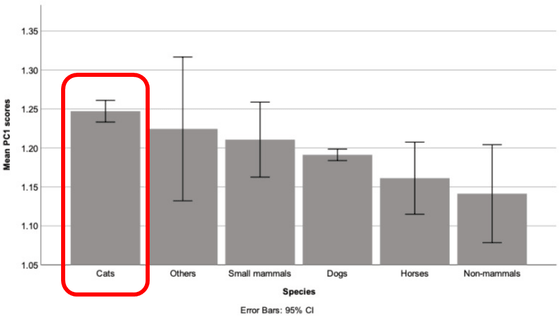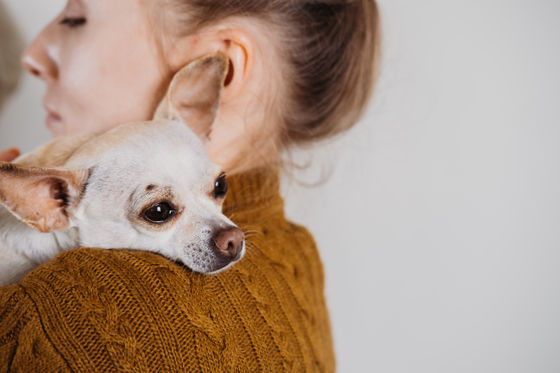The pandemic could have made many pets happy, especially cats

Pets such as dogs and cats
The Perceived Impact of The First UK COVID-19 Lockdown on Companion Animal Welfare and Behavior: A Mixed-Method Study of Associations with Owner Mental Health
https://www.ncbi.nlm.nih.gov/pmc/articles/PMC8201214/
Have cats become more affectionate in lockdown? New research shows the impact of the pandemic on pets
https://phys.org/news/2021-06-cats-affectionate-lockdown-impact-pandemic.html
Pets seem to have benefited from the pandemic overall, and cats may have benefited the most
https://www.zmescience.com/science/pets-cats-pandemic-mental-health-welbeing-2353567/
A research team led by Professor Daniel Mills, an ethologist at Lincoln University in the United Kingdom, conducted a survey of 5,323 pet owners living in the United Kingdom through a network of animal protection groups and SNS. The questionnaire asked whether pets changed during the first lockdown from April to June 2020, and specific changes in options and open-ended format. In addition, the pets owned by the respondents were diverse, including dogs, cats, horses, ponies , birds, fish, amphibians, and other small animals.

As a result of the survey, 32.7%, which is almost one-third of pet owners, answered that 'there was no particular change', but 33.1% of the respondents said that 'pets are now following me'. In addition, 27.5% said they were 'more affectionate.' On the other hand, only 10.9% and 5.9% of the respondents answered that they were 'restless' and that they 'became anxious and scared', respectively.
The following is a table of the details of the survey results. The number in parentheses means the number of answers.
| All species | Dog | cat | Horse etc. | others | |
| Came to follow | 33.1% (1764) | 33.9% (1190) | 35.3% (519) | 17.5% (17) | 15.3% (38) |
| no change | 32.7% (1740) | 32.7% (1149) | 32.3% (474) | 41.2% (40) | 30.9% (77) |
| Became affectionate | 27.5% (1465) | 24.8% (871) | 35.9% (527) | 19.6% (19) | 19.3% (48) |
| I came to relax | 25.5% (1357) | 25.3% (888) | 27.2% (400) | 27.8% (27) | 16.9% (42) |
| I became energetic and playful | 14.6% (777) | 15.1% (530) | 14.2% (208) | 10.3% (10) | 11.6% (29) |
| Became more sociable | 13.8% (732) | 8.4% (295) | 25.2% (370) | 7.2% (7) | 24.1% (60) |
| Restless | 10.9% (584) | 12.9% (454) | 7.8% (115) | 8.2% (8) | 2.8% (7) |
| Increased appetite | 9.1% (486) | 8.2% (288) | 12.2% (179) | 1.0% (1) | 7.2% (18) |
| The appearance of the coat has improved | 7.8% (414) | 7.7% (270) | 7.6% (112) | 17.5% (17) | 6.0% (15) |
| I started to feel anxiety and fear | 5.9% (314) | 7.0% (244) | 4.1% (60) | 4.1% (4) | 2.4% (6) |
| I gained weight | 5.2% (277) | 5.6% (195) | 3.9% (58) | 15.5% (15) | 3.6% (9) |
| Quiet and prone to blockage | 3.9% (212) | 5.0% (177) | 2.0% (29) | 4.1% (4) | 0.8% (2) |
| No longer following | 2.8% (150) | 3.1% (108) | 2.6% (39) | 2.1% (2) | 0.4% (1) |
| I lost weight | 2.3% (125) | 2.6% (92) | 1.8% (26) | 3.0% (3) | 1.6% (4) |
| I lost my appetite | 2.3% (120) | 2.7% (93) | 1.8% (26) | 0% (0) | 0.4% (1) |
| The appearance such as the coat has deteriorated | 1.9% (103) | 2.2% (77) | 1.4% (20) | 4.1% (4) | 0.8% (2) |
| Became hostile to owners and families | 0.6% (34) | 0.4% (15) | 1.1% (16) | 2.1% (2) | 0.4% (1) |
When the research team roughly divided the above changes into 'positive changes' and 'negative changes' and tabulated them by pet type, we found the tendency of pets to benefit from lockdown.
Below is a graph of pets with 'positive changes', showing the results that the leftmost 'cat' benefited most from lockdown. In addition to cats, positive changes were reported in the order of 'others,' 'small mammals,' 'dogs,' 'horses,' and 'non-mammals.'

Many of the cat owners who responded to the survey reported positive changes. For example, one respondent asked a free-form question: 'I have two protected cats, one of which was terribly timid before, but it's been very calm since I've been at home every day. I am answering.
On the other hand, some dog owners complained that less opportunities to spend outdoors, such as walking, had a negative impact on their dogs. For example, one respondent said, 'My dog is looking forward to meeting and playing with other dogs while taking a walk.'
Other owners reported possible symptoms of

Regarding these changes in pets, Professor Mills said, 'Due to temporary dismissals and remote work due to lockdown, owners have been around all day long, changes in daily life, pet training and veterinary care. Restricted access to related services may be a factor in the change, 'he said.
Related Posts:







